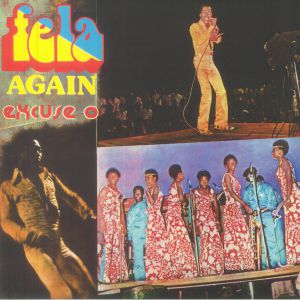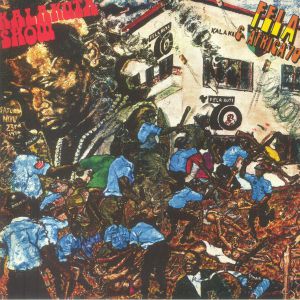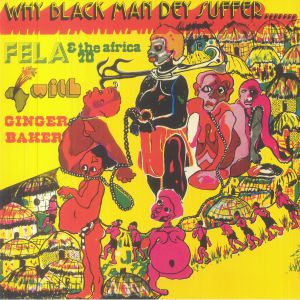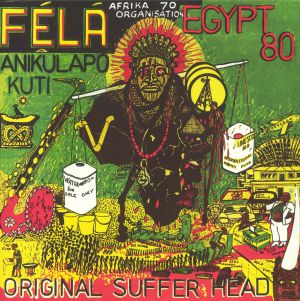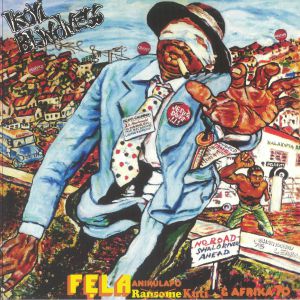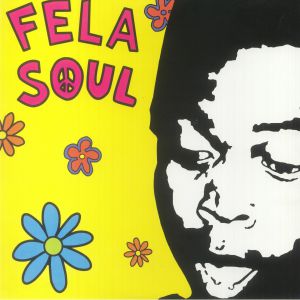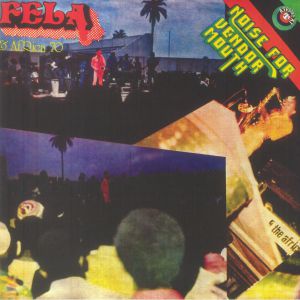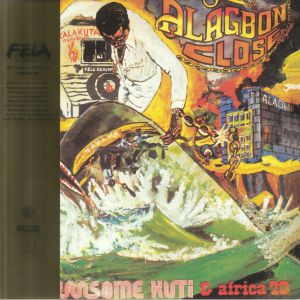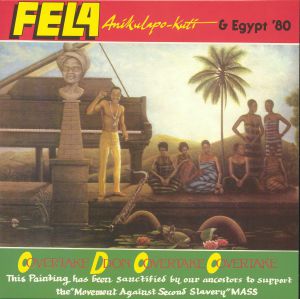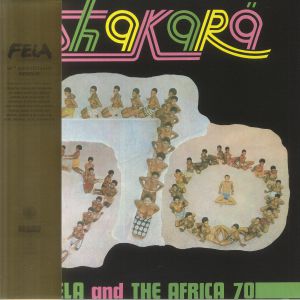Filter
在庫状況
Type
音楽
フォーマット
Featured
リリースタイトル
値段
タグ
Back catalogue: All genres
Juno's full catalogue of All genres
アルバム
Played by: Juno Recommends International
in stock $23.46
Review: There are a bunch of reissues of classic Fela Kuti albums dropping right now which is always going to be good news for collectors and Afrobeat lovers a like. As was often the case with his music, this album Kalakuta Show from 1976 was a way of him taking revenge on the military regime that attacked and brutalized him two years prior when the police mounted a large scale raid on Kalakuta Republic incoming Fela's own heavily guarded compound. They were the second raids in eight months and left Fela with scalp wounds and a broken arm, and us with this most remarkable musical retort.
… Read morePlayed by: Juno Recommends International
in stock $23.46
Why Black Men They Suffer (reissue) (translucent yellow vinyl LP)
Cat: KFR 20123. Rel: 25 Jan 24
International
Review: Why Black Man Dey Suffer was a major turning point early in Fela Kuti's career. On his first tour of the US the Afrobeat pioneer was turned to a more political, critical mindset thanks to the guidance of Black-rights activist Sandra Izsadore. When he returned home, he took aim at the injustice and inequality he saw throughout post-colonial Africa, and wrote and recorded this mightily potent album as a result. In some ways it's more measured than he would grow to become, but the power of the music is undeniable. Recorded in 1970, when Tony Allen was still being joined by unlikely collaborator Ginger Baker on the drums, this is a landmark part of a true musical legend, now repressed on translucent yellow vinyl courtesy of Knitting Factory.
… Read more in stock $23.46
Review: Like so much of his often faultless work, Original Sufferhead by Fela Kuti is a powerful and politically charged album that embodies the essence of Afrobeat. For that reason, it is well deserving of this reissue as it remains relevant in more ways than one all these years after its original release in 1981 with its signature blend of funk, jazz, and traditional African rhythms, coupled with biting social commentary. The album confronts issues of oppression, corruption, and inequality, with Fela's impassioned vocals leading the charge. Each track is a call to action, urging listeners to rise against injustice and oppression. With its infectious grooves and thought-provoking lyrics, this is a timeless listen that continues to inspire and resonate with audiences around the world.
… Read morePlayed by: Juno Recommends International
in stock $23.46
Played by: Juno Recommends International
in stock $23.46
Played by: Juno Recommends Hip Hop/R&B
in stock $32.70
Played by: Juno Recommends International
in stock $23.46
Alagbon Close (50th Anniversary Edition) (limited jollof orange vinyl LP with obi-strip)
Cat: KFR 20118. Rel: 10 Oct 24
International
Review: Fela Kuti's Alagbon Close, released in 1974, stands as one of his most powerful Afrobeat statements, criticising police brutality in Nigeria. The title track was inspired by two raids on Fela's home, where police searched for marijuana. After swallowing a planted joint, Fela was detained at Alagbon Close, the headquarters of Nigeria's Criminal Investigation Department, for three days while police waited for evidence. His cellmates, in what became known as the Kalakuta Republic, helped Fela escape prosecution. Fela's lyrics denounce the arrogance of the police, declaring that wearing a uniform doesn't place one above the law. The album also marked the beginning of his collaboration with artist Ghariokwu Lemi, whose iconic cover art became synonymous with Afrobeat. Recorded at the A.R.C. Studios, the album is fueled by tight polyrhythms and fiery organ and horn sections, with Fela's sharp political commentary at the forefront. On Side-2, 'I No Get Eye For Back', offers a more groove-driven, mostly instrumental track, showing the collective talents of Africa 70. Together, these tracks solidify Alagbon Close as a timeless work of rebellion and musical innovation.
… Read morePlayed by: Juno Recommends International
in stock $23.75
Overtake Don Overtake Overtake (reissue) (translucent green vinyl LP)
Cat: KFR 20443. Rel: 22 Feb 24
International
Played by: Juno Recommends International
in stock $23.46
Shakara (50th Anniversary Edition) (gatefold pink vinyl LP + yellow vinyl 7" with obi-strip)
Cat: KFR 20278. Rel: 12 Jan 23
International
Review: Originally released in 1972, Shakara is a shining example of Fela Kuti & The Africa 70 in full flight. Made up of two 13-minute long pieces, the definitive Afrobeat sound is laid out in undulating, impossibly funky form. Tony Allen holds it down on the drums and the brass section from Tony Njoku, Igo Chico, Lekan Animashaun and Kuti himself punches out with urgency. This 50th anniversary release does things a little differently by inviting the excellent Ezra Collective to deliver their own versions of each track, each getting their side to lay down expansive reflections on the trailblazing groundwork laid by Kuti and his bandmates half a century ago.
… Read more in stock $30.16
Fela KUTI / VARIOUS
Red Hot & Fela (10th Anniversary Edtion) (limited yellow & red vinyl 2xLP + insert)
Cat: KFR 11313. Rel: 26 Oct 23
International
Superhuman Happiness - "ITT (International Thief Thief)" (with Sahr Ngaujah, Abena Koomson & Rubblebucket) (6:03)
Review: Fela Kuti lives on! This is the 10th Anniversary reissue of the classic tribute album Red Hot & Fela, pressed on opaque banana yellow and opaque red vinyl, with proceeds benefiting the Red Hot organization. Since his death in 1997 from complications related to AIDS, Fela Kuti has grown from a West African household name and musician's musician in Europe and the Americas, to a worldwide musical icon. This album hears thirteen collaborative supergroups - made up of stars including Childish Gambino, Kronos Quartet, Spoek Mathambo, Sinkane, Tune-Yards and Baloji & L'orchestre De La Katuba - pay tribute to the Nigerian musician and activist, taking after him in style and cover. Successful, they translate the Afrobeatific sound of Kuti, Africa 70 and Egypt 80 towards an electrified present and future.
… Read more in stock $29.05

 USD
USD






